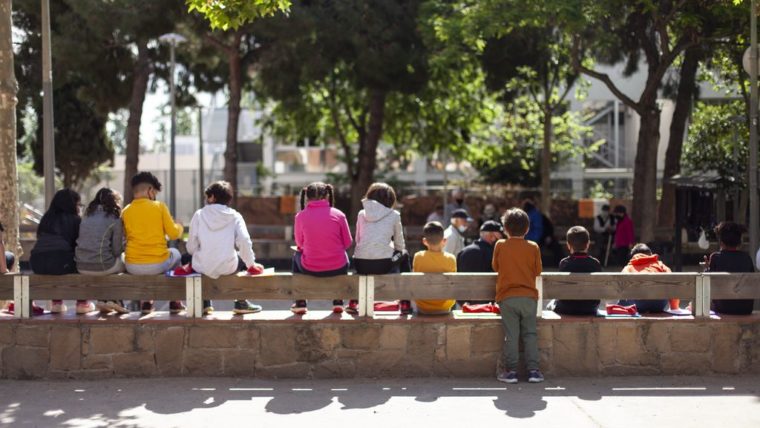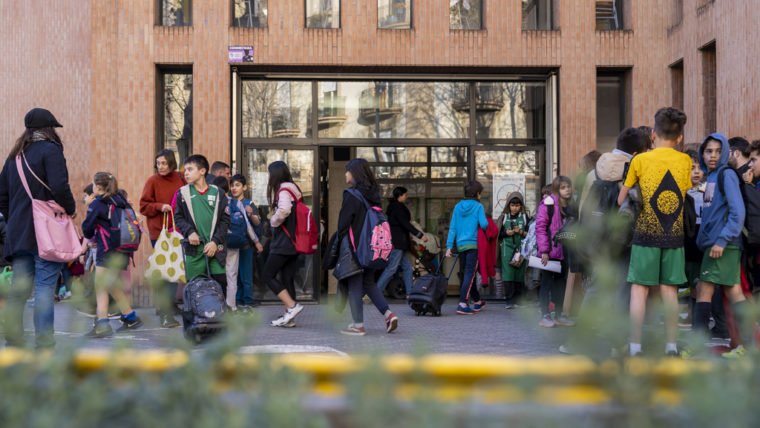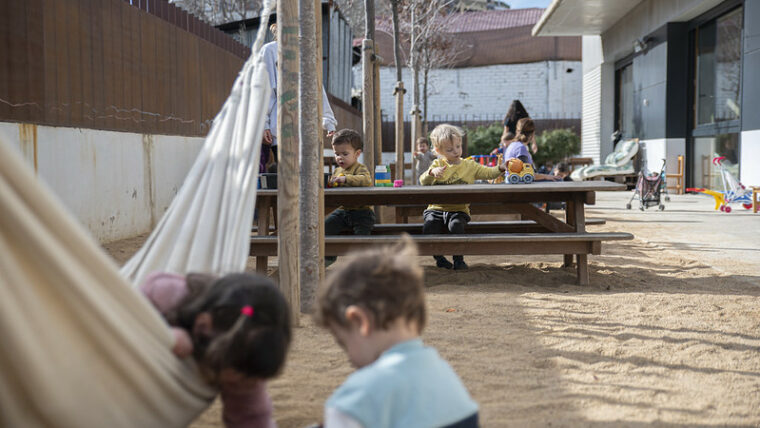Educational equity increases in the city’s schools
Compiled by the Metropolitan Institute, the Barcelona Educational Opportunities Report 2022 shows a 23% drop in segregation in first-year nursery schooling, 16% in primary school levels and 26% in secondary school levels, as well as a 5.1% increase in students passing their final year of secondary school in the last six years. For the first time ever, the percentage of infants enrolled at publicly operated nursery schools is greater than the figure for private centres.
School segregation reduced
The study shows a drop in school segregation of 23% in infant schooling, 15.9% in primary and 26.4% in the first year of secondary school. The data also point to other changes which contribute to this reduction in recent school years: higher detection of students with special education needs (detection figures tripled between 2018 and 2021) and a more equal distribution (still short of parity) of these students between the public sector and the state-subsidised private sector. There has also been an increase in second-year public places in infant schooling, in primary schools, secondary schools and vocational training, plus more places at municipal nursery schools and child-rearing spaces.
Public nursery school enrolments outnumber private ones for the first time
The study attributes this to the growth in the network of public nursery schools between 2012 and 2022 (with 8 new schools and 822 more places).
Even so, the increase in places at municipal nursery schools has not been enough to fully cover demand, and 43.2% of families applying for places at these schools fail to get one. Recent years have seen the demand covered by municipal nursery schools worsen slightly: in 2015-2016 the figure was 59.2%, and in 2022-2023 it was 56.8%.
In this respect, access to the first year of infant schooling is far from universal, with only 44.3% of infants in the city schooled at this age.
Fewer students retaking years and more passing their final year of secondary school
Between 2001 and 2022, the number of public-sector students in their second year of infant school rose from 39.7% to 50.9%. In primary, this increase was from 37.7% to 46.9%, and in secondary from 33.4% to 38.8%. This means that publicly operated schools gained 11.2% more pupils in infant schooling, 9.2% in primary and 5.4% in secondary.
The report also points to other positive aspects in terms of greater educational equity in compulsory education. For instance, from 2017-2018 to 2021-2022, the number of children retaking school years fell, mainly in secondary schooling (down by 3.8%).
The number of students passing their final year of secondary school was also up: in 2015-2016 the figure was 88.8%, compared to today’s figure of 93.9%.
Either way, inequalities in students’ socio-economic status continue, with boys of foreign nationality schooled in public centres faring the worst in terms of results gained, retaking years and passing final years.
Unequal participation in educational activities outside school hours
The research also highlights how Barcelona enjoys an extensive and varied range of extra-curricular activities. By volume, the most common are: sports (particularly football, basketball and volleyball); cultural and artistic activities (such as music, dance and theatre); languages (especially English, and to a lesser degree German and French); educational support (revision, furthering basic skills), and science and technology, such as robotics.
The report also notes the growth of the summer holiday campaign, which practically doubled in size between 2013 and 2022, reaching over 124,000 activities pursued by children and young people in the last edition.










